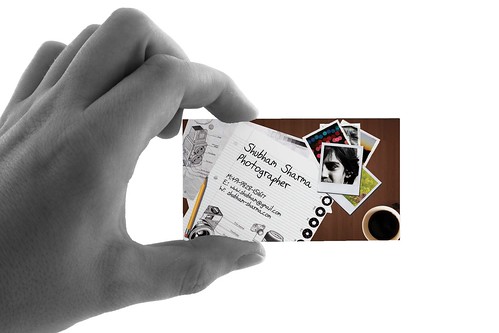
“What do you do for a living?” – I ask him eager to do some chill networking. As I say this, my mind is automatically thinking: “Here comes another crappy answer I’ll have to work with”.
You might say that’s pessimistic of me; I say it’s more of an educated guess. It’s not that they’re not a lot of people out there with interesting jobs they’re passionate about. It’s just that they haven’t learned or haven’t considered the people skill of talking about them in a powerful way.
You see, answering “What do you do for a living?” in a stylish way is a great method to get the other person interested in the conversation, in your person, and to brand yourself. As a communication coach, there are a number of things I find important in answering this question.
Use a Suggestive Title for What You Do
It’s not important to use the exact job title in your job description in a conversation, even if it’s a business conversation. I sometimes meet a person who according to the JD is an ‘Executive Assistant’, but their job is much more of an HR job. ‘HR Assistant’ works a lot better as a title for them.
The point is to use a job title that realistically reflects the nature of the things you do in your job or the type of impact you have.
There is one answer to “What do you do for a living” that I find particularly bad: “I’m a consultant”. That doesn’t tell me shit about your job! They’re a zillion consultants out there.
Be Memorable
Some titles, they may be suggestive for what you do, but they simply aren’t remarkable in any way. Of course, there are plenty of ways to be memorable; you don’t need to desperately seek being memorable through your job title, but it is certainly a big bonus, especially in jobs where personal branding matters the most.
This is why I encourage you to use a memorable title for your job. Alain Cardon could have called himself a ‘Life Coach’, but he calls himself a ‘Breakthrough Catalyst’. Mars Dorian could have called himself a ‘Blogger’ but he calls himself a ‘Digital Crusader’. These are the kind of titles that stand out and they stick.
Follow-Up with an Exciting Explanation
After you’ve said your job title to answer the question, do not stop there. A title may be cool, suggestive and sexy, but it’s still only a title.
You want to do is continue with a short and powerful description of your job. Again, it’s important to remain clear and memorable. Some things to consider adding to this description are:
- What you do exactly. Ex: “I speak on the area of Customer Service at conferences all over the world”.
- What practical benefit you create: Ex: “I help organizations improve they way they interact with their customers and increase customer loyalty”.
- Why what you do is important for you. Ex: “I believe that good results start with good customer service”.
But Eduard, What If I Have a Job I Hate and I Don’t Want to Talk About?
For this not so uncommon scenario, the first significant thing I can tell you is that you’d better at least have an aim for a different career and know what that career is.
Based on this, when you answer the question you can name your current job and then quickly move on to talking about the job you’re aiming for.
You may say something like: “I now work as a Sales Agent in an FMCG company, but I’m training to become a Career Coach. I have a passion for helping people find their way”.
The more you master your people skills and the better you present yourself, the more you “attract” all sorts of remarkable people and breathtaking career opportunities. And it often all starts with answering in style one simple question.
Image courtesy of Lucid Dreams